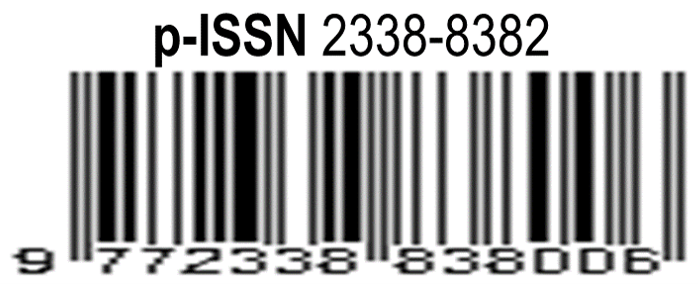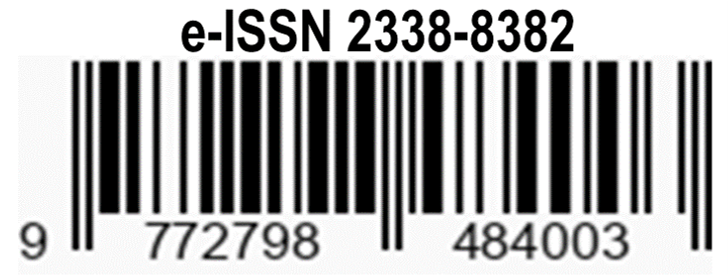Penanaman Nilai-Nilai Karakter Berbasis Storytelling Cerita Keagamaan
(Komunikasi Pembelajaran Melalui Cerita Wanaparwa)
Abstract
Religious stories that developed in the archipelago, especially the Mahabharata story, became a guide for the people in the life of the nation and state. Education as a means of educating the nation through the mastery of knowledge must be followed by character education so that it can become a whole human being. Religious stories contain various noble values that can strengthen character. This paper aims to understand and analyze the form of character education values contained in Wanaparwa as a form of community adaptability in various conditions faced. This research uses a descriptive qualitative approach with hermenuetic studies. Using literature studies, the results show that the dominant character values found in Wanaparwa stories are truth or honesty, religion, hard work and perseverance. Six value orientations in the Wanaparwa story fulfill Spranger's theory of theoretical value, economic value, aesthetic value, social value, political value, and religious value fulfill the interpretation of the meaning of the Wanaparwa story. Wanaparwa stories are worthy of being adopted by educators (communicators) as media (messages) containing noble character values to be conveyed to students (communicants) through the storytelling method (channel) to strengthen character (effect).
References
Budiarti, Y. (2019). PENDIDIKAN KARAKTER: SEBUAH UPAYA KOLEKTIF. Jurnal Civic Education: Media Kajian Pancasila Dan Kewarganegaraan, 3(1). https://doi.org/10.36412/ce.v3i1.910
Derosier, M. E., & Mercer, S. H. (2007). Improving Student Social Behavior: The Effectiveness of a Storytelling-Based Character Education Program. Journal of Research in Character Education, 5(2).
Effendy, O. U. (2011). Ilmu Komunikasi Teori dan Praktek (Tjun Suarjaman (ed.); 23rd ed.). Remaja Rosdakarya.
Haerudin, D. A., & Cahyati, N. (2018). Penerapan Metode Storytelling Berbasis Cerita Rakyat dalam Menanamkan Nilai-Nilai Karakter Anak. Jurnal Pelita PAUD, 3(1).
Kogila, M., Ibrahim, A. B., & Zulkifli, C. Z. (2020). A Powerful of Digital Storytelling to Support Education and Key Elements from Various Experts. International Journal of Academic Research in Progressive Education and Development, 9(2). https://doi.org/10.6007/ijarped/v9-i2/7483
Mardjono. (2010). Konflik pandawa-kurawa dalam pandangan Karl Marx. Lakon Jurnal Pengkajian & Penciptaan Wayang, 7(1). https://doi.org/https://doi.org/10.33153/lakon.v7i1.749
Mayuni, AA Inten, D. (2013). Wana Parwa (I. B. Jelantik (ed.)). CV. Setia Bakti.
Melzi, G., Schick, A. R., & Wuest, C. (2023). Stories beyond Books: Teacher Storytelling Supports Children’s Literacy Skills. Early Education and Development, 34(2). https://doi.org/10.1080/10409289.2021.2024749
Miles, M. B., & Huberman, A. M. (1994). Miles and Huberman 1994.pdf. In Qualitative Data Analysis: An Expanded Sourcebook.
Mulyana, D. (2015). Ilmu Komunikasi Suatu Pengantar (19th ed.). Remaja Rosdakarya.
Puspita Dewi, L., & Rachman, B. (2023). Penanaman Moral dan Karakter Anak Usia Dini dari Nilai-Nilai Pancasila dengan Metode Nyata Belajar di Ranah PAUD. Indonesian Journal of Society Engagement, 3(3). https://doi.org/10.33753/ijse.v3i3.100
Rafiek, M. (2015). Teori Sastra Kajian Teori dan Praktik (3rd ed.). Refika Aditama.
Ramdhani, S., Yuliastri, N. A., Sari, S. D., & Hasriah, S. (2019). Penanaman Nilai-Nilai Karakter melalui Kegiatan Storytelling dengan Menggunakan Cerita Rakyat Sasak pada Anak Usia Dini. Jurnal Obsesi : Jurnal Pendidikan Anak Usia Dini, 3(1). https://doi.org/10.31004/obsesi.v3i1.108
Ratna, N. K. (2015). Teori, Metode, dan Teknik Penelitian Sastra (13th ed.). Pustaka Pelajar.
Sobur, A. (2013). Semiotika Komunikasi (Interprestasi). In ウイルス.
Subramaniam, K. (n.d.). MAHABHARATA. Paramita.
Sudrajat, A. (2011). MENGAPA PENDIDIKAN KARAKTER? Jurnal Pendidikan Karakter, 1(1). https://doi.org/10.21831/jpk.v1i1.1316
Sumadi, T., Yetti, E., Yufiarti, Y., & Wuryani, W. (2019). Transformation of Tolerance Values (in Religion) in Early Childhood Education. JPUD - Jurnal Pendidikan Usia Dini, 13(2). https://doi.org/10.21009/jpud.132.13
Suratman, A. L. R. & B. (2020). Peran Pendidik Dalam Menanamkan Nilai Agama dan Moral Anak Usia Dini. Didaktika: Jurnal Kependidikan, 14(1).
Thomas Lickona. (2013). Pendidikan Karakter Panduan Lengkap Mendidik Siswa Menjadi Pintar dan Baik (IV). Penerbit Nusa Media.
Titib, M. (1998). Veda Sabda Suci Pedoman Praktis Kehidupan (1st ed.). Paramita.

This work is licensed under a Creative Commons Attribution-ShareAlike 4.0 International License.





.png)


.png)






